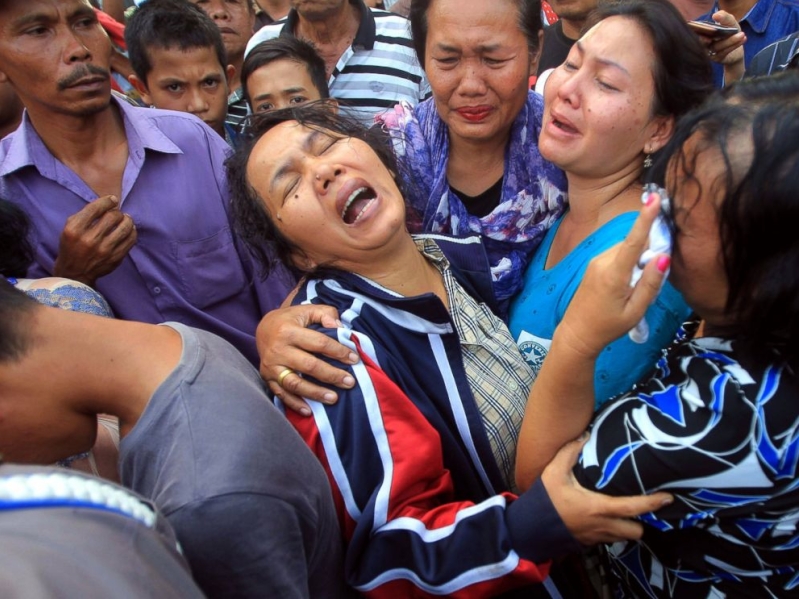
An Indonesian woman who embraced Christianity has been banished from her home by her Muslim family as religious intolerance continues to increase in the world's most populous Muslim-majority nation.
International Christian Concern (ICC) shares the story of Nisa, a young Muslim woman who fell in love with Daniel, a Christian. While her parents were against the two marrying, they eventually consented, but warned that Nisa must never leave the Muslim faith - or face the consequences.
Despite their religious differences, Nisa and Daniel married, and had four children who are now ages 12 to 26. Because Daniel was gone most of the time due to his job on a cargo ship, Nisa chose to stay at her parents' house as their children grew up.
For years, Nisa took her children to church on Sundays and dropped them of, returning later to pick them up. However, while she was waiting for the service to end, she couldn't help but hear the words of the sermon.
Curious, Nisa decided to one day join a church service and listen to a sermon. Over time, her attendance became more frequent, and soon she decided to become a Christian. She said that once God touched her heart, everything changed in her life. Her eyes were opened to grace, forgiveness, and unconditional love -- starkly contrasting the teachings of Islam.
"It is hard conditions Muslims give to us to be qualified to be accepted in heaven," she told ICC. "I see the difference in the Christian way. Jesus did it for us. Not by power and not by our effort, but by the cross."
Others noticed the difference in her life too. Nisa's pastor told ICC, "There are so many differences before and after she became a Jesus follower. She was a mother of four and full of anger. She spoke bad words to her children and hit them when she was angry." Now, he said, "The Bible leads her to live in a new way."
Although she was able to hide her Christianity from her family for years, she eventually was cornered into revealing her newfound faith. Her infuriated family demanded she leave their house: "I called my pastor and I started crying when I was telling him about it," she told ICC.
While Nisa's family has allowed her to remain with them for one more year to allow her to find a house, move her small shop, and let her youngest child finish her school year, she remains alienated from them.
Currently, ICC is supporting Nisa and helping her family look for a place to live. To find out more about ICC's projects and how you can support them, please visit www.persecution.org.
Christianity is Indonesia's second-largest religion, after Islam. Indonesia's 24 million Christians constitute 10% of the country's population, with 7% Protestant (17 million) and 3% Catholic (7 million).
Nevertheless, persecution watchdog Open Doors USA notes that radical Islamic groups continue to pose serious challenges in Indonesia, especially when connected to international movements. Because of this, Indonesia is ranked 46th on Open Doors' World Watch List of 50 countries where believers face the most persecution.
On Wednesday, Basuki Tjahaja Purnama, center, better known as Ahok, the Christian governor of Jakarta, lost a bitterly fought race to his main challenger, Anies Baswedan, a Muslim.
The New York Times notes that at one point last year, Ahok held a double-digit lead in the polls, but his candidacy was crippled by a highly-publicized criminal trial in which he was accused of blasphemy against Islam. Ahok's supporters say the charges of insulting Islam are politically motivated and aimed at ending his political career.
Bonar Tigor Naipospos, vice chairman of the executive board of the Setara Institute for Democracy and Peace, a research institute in Jakarta, told the outlet that Ahok's defeat will likely "embolden hard-line Islamic groups to further pressure the Jakarta and national governments to put in place an ultraconservative agenda, including instituting Islamic law."
"It's a challenge for Indonesia's democracy," he said. "It shows to me that Islamization is deepening in society, especially in urban areas and cities."






